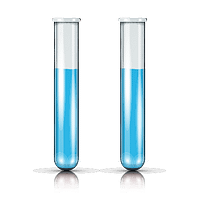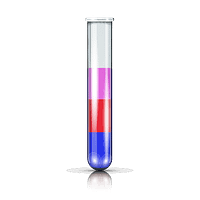A natural aspect of aging is the change in hormone balance in both men and women. This is due to various factors, including the lowered production of some hormones, decreased sensitivity to certain hormones, or the knock-on effects of reduced hormone availability to make other hormones. With age, muscle and bone strength declines. Many men and women suffer from loss of libido and sexual function, lowered metabolism and a decreased ability to burn fat. Older age is also associated with a poorer sense of wellbeing, which in some cases can lead to depression. These changes have much to do with the decline in the sex hormones, estrogen and testosterone, which are produced by the ovaries and testes. The decline in bone strength is particularly prominent in women during menopause when estrogen (estradiol and (o)estrone) levels decline rapidly. Men are also affected by a decline in estradiol as they get older, and lowered testosterone levels occur in both sexes. The building blocks for the sex hormones are produced in the adrenal gland. The adrenal gland produces two prominent androgens, DHEA (dehydroepiandrosterone), which is needed to make testosterone and estrogen, and DHEA-S (dehydroepiandrosterone-sulphate). Both DHEA and DHEA-S decline sharply around middle-age, a phenomenon referred to as ‘adrenopause’. The reduction in sex hormones seen in aging, is in part due to reduced availability of adrenal DHEA, and this acts to feed into symptoms of depression, reduced bone mineral density and loss of sexual function. Additionally, DHEA and DHEA-S play a role in mood, cognitive function and immunity. Reduced levels may also have implications for metabolism, such as increased obesity and decreased sensitivity to the metabolic hormone insulin.
Glucocorticoids are another major class of hormones secreted by the adrenal glands. Unlike the decline in adrenal androgens, the key glucocorticoid stress hormone, cortisol, actually increases with aging. Cortisol is key to regulating multiple vital processes including cognition and memory, metabolism, muscle health, blood pressure and immune function. However, too much cortisol has negative effects on health, including depression, poor short-term memory recall and insomnia. In older people, the checks and balances to control cortisol action are dampened down, and stress in this group, who are already more at-risk of age-related ailments, can be particularly damaging to overall health. Older age is also associated with less defined sleep/wake patterns and often difficulty sleeping at night. Hormone production in the brain declines with age, and this includes production of the sleep hormone melatonin. Melatonin also influences other aspects of health including enhancing immunity and reducing inflammation caused by injury, which is particularly relevant in older people who are at higher risk of infection. See all test kits related to Aging Here
Single or multi-hormone saliva test kits offered by TestoChecker can help understand current levels of hormones that may be altered with aging and important for optimal wellbeing:
Alternatively, custom made kits can be ordered to tailor tests to your specific needs.


